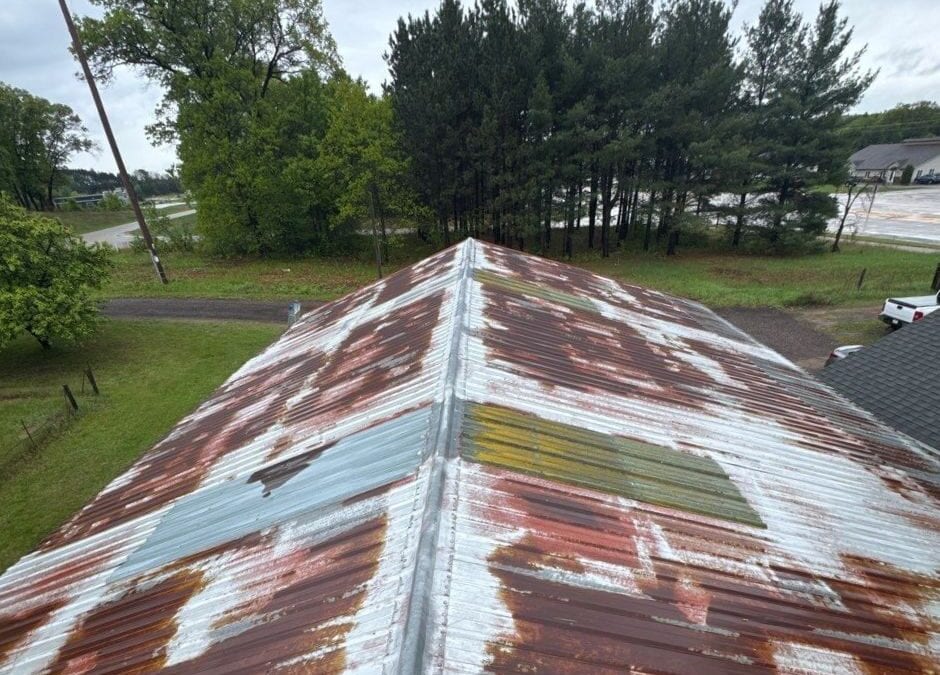Hiring a roofing contractor can be daunting—because if they are sloppy, then a lot of time, money, and effort is wasted, and your headache will not be resolved. If they tack on extra fees to the final bill, then you cannot budget based on their estimate. If they miss their deadline, then your business can be disrupted.
A commercial building is an asset, but an expensive one that requires maintenance. When you have your roof repaired, restored, or replaced, you are investing in your business. Wouldn’t it be nice to know that you made a wise investment and won’t need to re-invest for years?
When hiring a roofing contractor, you want to avoid costly mistakes, hidden fees, and missed deadlines.
Problems to Avoid
Costly Mistakes
Major mistakes primarily come from miscommunication and sloppiness or lack of care.
Miscommunication may occur because the contractor failed to ask enough questions initially, failed to provide a clear action plan for you and the crew that outlines what to fix or replace (especially when only a section of the roof is being repaired), or failed to communicate during the project to discuss any issues or changes as they arise.
Sloppy work is often par for the course for a contractor when a project is “too small” for them to care about, or they are so busy that they care more about speed than quality. In any case, sloppiness is disrespectful and shows poor integrity and priorities.
Lack of communication often results in direct mistakes on the roof if the crew does not install the correct system or fails to fix all the requested repairs. Sloppy work forces the crew to come back to fix leaks which should’ve been fixed on the first try. Ultimately, miscommunication and sloppy work result in dissatisfaction with the work due to unmet expectations.
Hidden Fees
When you purchase something, you expect that an item marked as $50 costs $50. But often times in construction, they give you a quote of say $20,000, but at the end of the project, a few “little” fees have arisen “unexpectedly,” and the bill is $25,000.
When a contractor nickels and dimes you for every little unforeseen expense, it reveals poor planning, and they put it on you instead of eating the cost or quoting the roof at $25,000 so that you can appropriately budget for the expense.
Missed Deadlines
If a contractor consistently misses the deadlines you and they have agreed to (often because of poor planning), it forces you to adjust your plans and business schedule to work around their ever-changing schedule.
Understandably, roofers must work around the weather and may have a delay of 1-2 days due to weather. However, if they are weeks later than the date originally agreed to, then their project timelines need better estimates so that you know when to expect the roof to be under construction in case it hinders business operations or in case you are depending on the leaks being plugged before starting a project.
But how do you determine if the contractor you hire will avoid mistakes, be upfront and accurate about the total cost, and complete the project in a timely manner?
Here are 6 steps to go through when evaluating a contractor:
Step 1: Prioritize Customer Service and Communication
Your roofing contractor should be responsive, transparent, and proactive from the first phone call through project completion and through the warranty period.
What to Look For:
- Clear explanations of the roofing options and costs
- Willingness to answer your questions thoroughly
- A dedicated project manager or point of contact
- Regular updates during the job
- 2-3 day response time to emails and phone calls
What to Avoid:
Roofers who dodge questions, use jargon without explanation (they may be trying to hide an answer you wouldn’t care for behind confusing language), or fail to return emails and calls promptly (shows that you may not be a high priority job for them).
Step 2: Check Reviews and Ask for Referrals
Online reviews give insight into past customers’ experiences—look for consistent positive feedback on quality, timeliness, and professionalism.
What to Look For:
- Ample recent, positive reviews
- Case studies or testimonials on the company website
- Referrals from trusted contractors or local building owners
- Referrals from similar size businesses (shows they are not too big to care about small projects or too small to handle big projects)
What to Avoid:
Companies with very few reviews or multiple reports of unfinished work, extra fees, slow communication, unresponsiveness, or poor cleanup.
Step 3: Consider Location and Company Size
Local companies tend to be more familiar with your area’s climate, building codes, and suppliers. Smaller companies may offer personalized service, while larger firms might provide more resources and a broader range of services.
What to Look For:
- A contractor with established presence in your region
- Staffing and equipment that matches your project size
- Company stability (How long have they been in business? Will they still be in business through the warranty period?)
What to Avoid:
Contractors who aren’t local, subcontract most work, are likely to go out of business before the warranty ends, or lack proper licensing and insurance.
Step 4: Evaluate Quality of Work Materials and Expertise
Not all roofs and restorations are equally good. The right roofer uses high-quality materials from trusted manufacturers and has expertise in the specific roof type that will be installed. This is especially important with spray foam and coating systems since many contractors do not have the expertise or equipment to install these.
What to Look For:
- Manufacturer certifications and warranties
- Portfolio of completed projects similar to yours
- Trained and certified installers
What to Avoid:
Offers focused on lowest price alone without detailed product knowledge or warranty considerations.
Step 5: Verify Licensing, Insurance, and Warranty
Protect your business by working with fully licensed and insured contractors who stand behind their work with solid warranties.
What to Look For:
- Up-to-date local and state licensing
- General liability and properly insured crews
- Written warranty terms covering materials and labor
What to Avoid:
Contractors unwilling or unable to provide proof of licensing, insurance, or warranties in writing.
Final Tips: Trust Your Gut and Avoid Rush Decisions
- Get multiple quotes—don’t automatically choose the cheapest. But also don’t discount the cheapest option: find out why it is the cheapest. Sometimes smaller companies can offer better quotes because they have less administrative overhead.
- Beware of high-pressure sales tactics or “limited time” offers. They’re rushing you, and it usually is too good to be true.
- Take time to read and understand contracts fully before signing.

